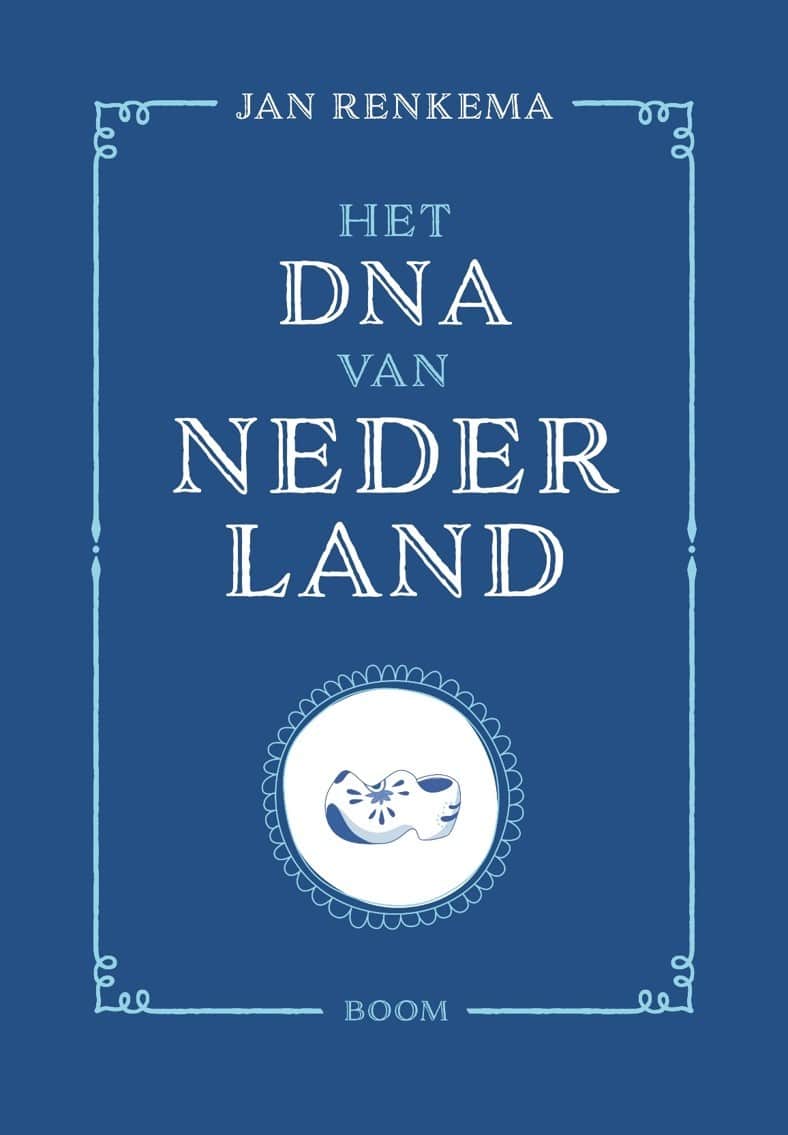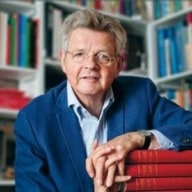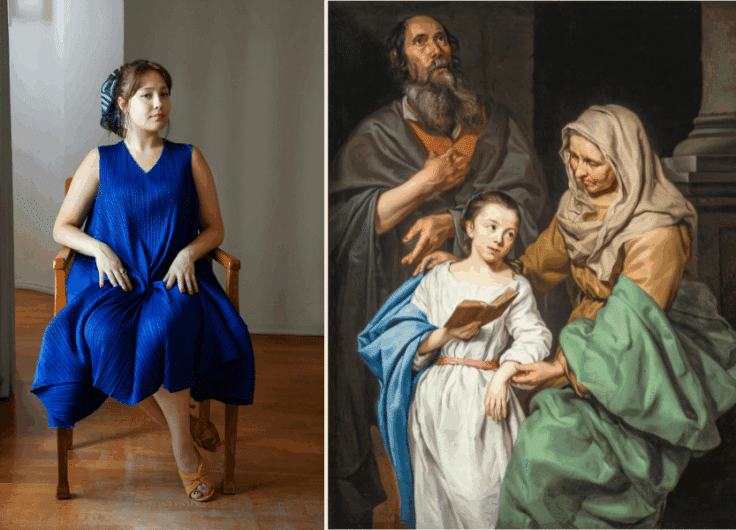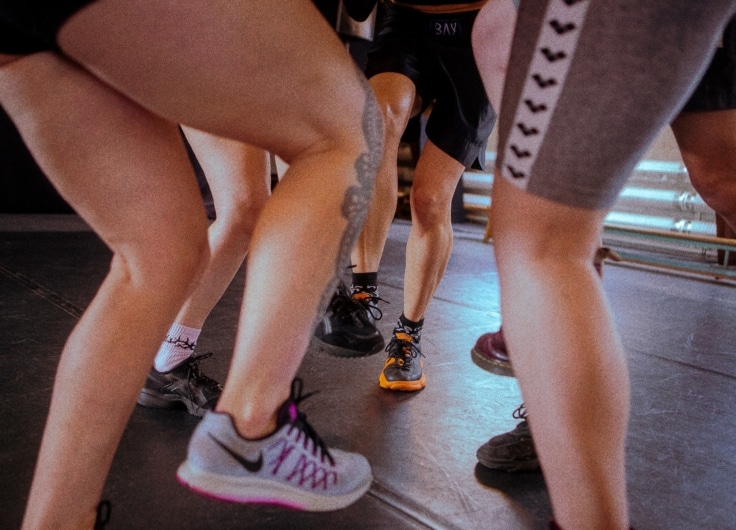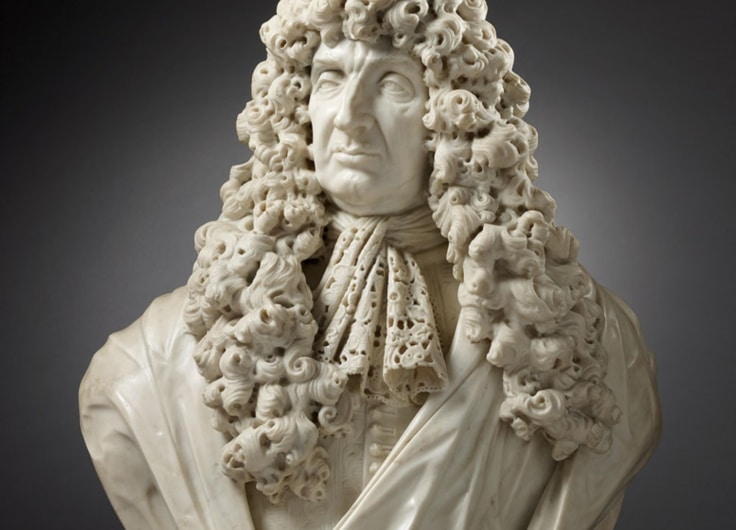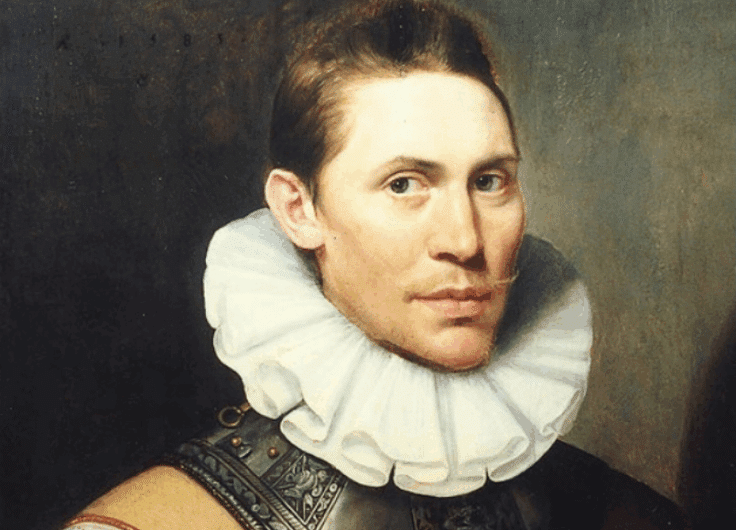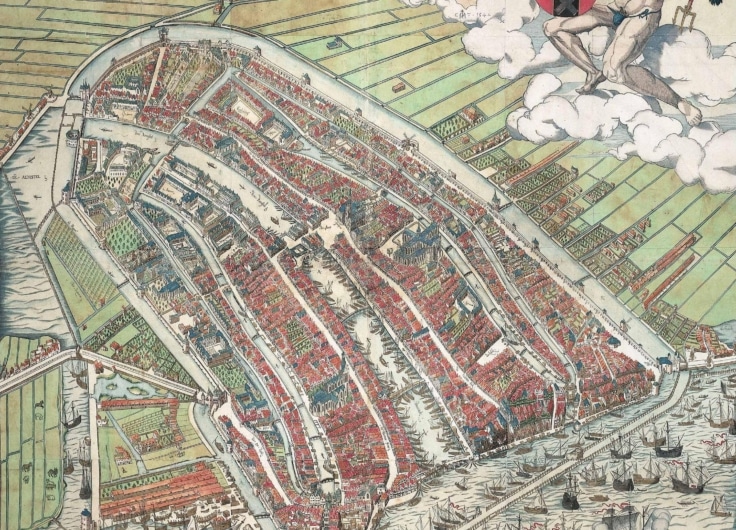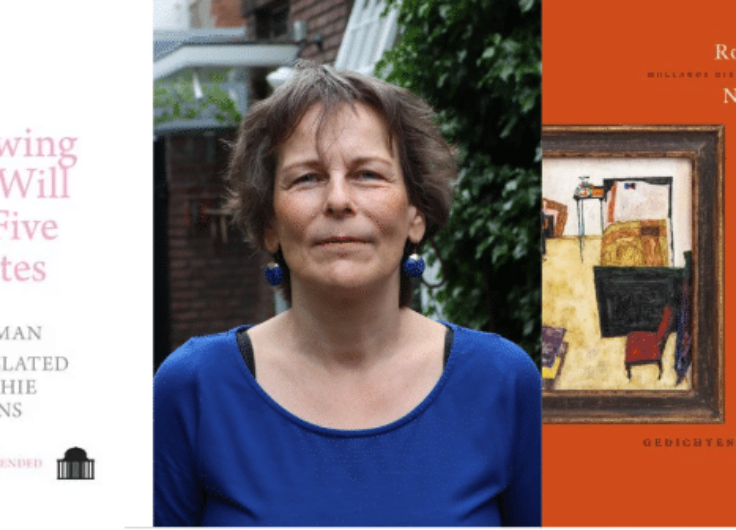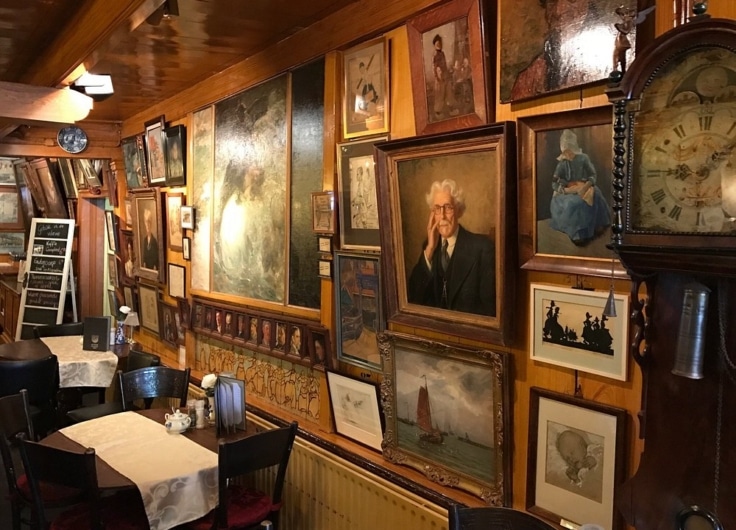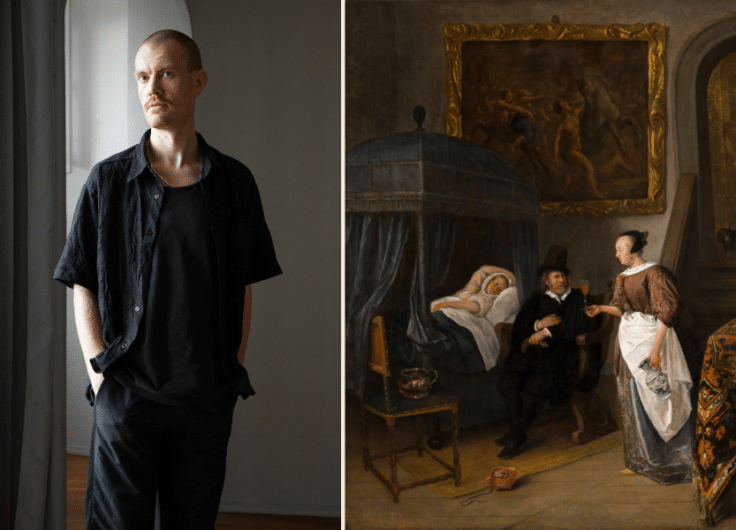Why Thoughts are Free in the Netherlands
Is there such a thing as a ‘Dutch identity’? And if so, what does it look like? Jan Renkema provides a clear analysis of the main characteristics in his pamphlet ‘The DNA of the Netherlands’. This week he explains why the Dutch are well-known for their liberal thinking.
It looks like we’re still flying about above the country. We can now see how open our small nation is, with rivers flowing across the low country from Europe to the sea. In the middle ages, towns in the northeast flourished due to trade with Northeast Europe. Throughout the ages, many ‘newcomers’ were able to arrive because of our open connections.
The rise of the city of Amsterdam in the sixteenth century is mainly due to the fact that, in 1585, the globally powerful Spain – the Koning van Hispanje from our national anthem – succeeded in conquering an important port city from our southern neighbours.
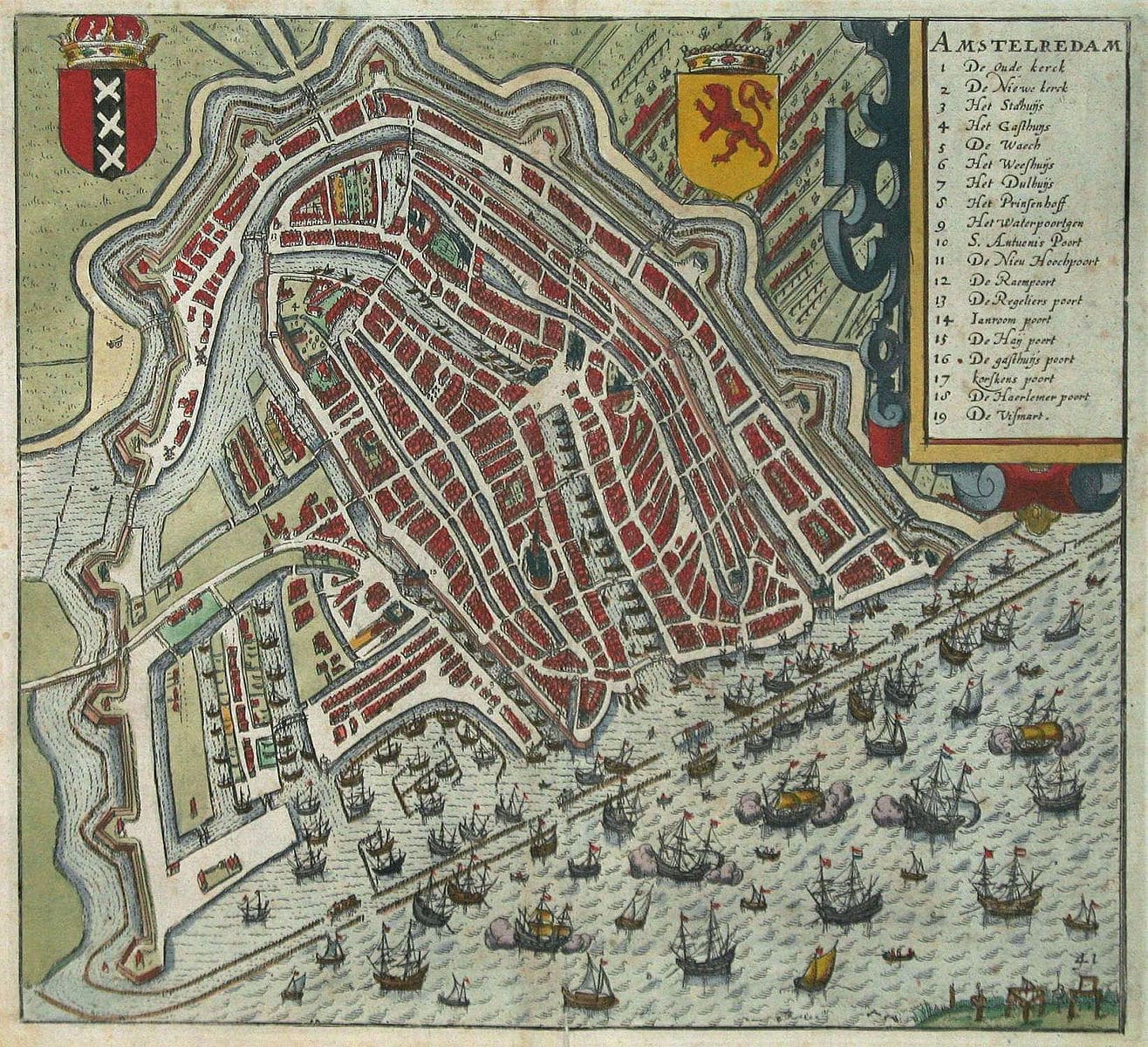 Amsterdam in 1593
Amsterdam in 1593© Wikipedia
Look, down there is Antwerp at the end of ‘our’ lower estuary. Many talented inhabitants went to the north of the Low Countries at the time, where they tried to build a country in freedom. Over the centuries, our country has always had great appeal to refugees and people who could no longer live freely in their own societies. In the seventeenth century, migrant workers in the province of Holland, the region by the sea, made up about ten percent of the country’s population.
The Netherlands has always had great appeal to people who could no longer live freely in their own societies
About twenty percent of the current population comes from foreign descent. You can see that in the names we give our children. Nowhere else in the world does there seem to be such a diversity in first names. In much the same way, if a new dish is created somewhere in the world, it will soon be served here, too.
Each year, some ten million foreigners come to the Netherlands, be it as tourists or for business. With approximately only 850,000 inhabitants, Amsterdam is not seen internationally as a world-class city, and yet it accommodates upwards of 180 nationalities. This means that almost all of the world’s countries are represented among this melting pot of cultures.
 Amsterdam accommodates upwards of 180 nationalities
Amsterdam accommodates upwards of 180 nationalities© consultancy.nl
You may now understand why there is always much debate in the Netherlands surrounding the Dutch identity, and why this debate always flares up again when more ‘newcomers’, driven out by war, want to build a life here.
Let’s go further back in time. The society that first arose here a few centuries ago, based on the solidarity of cooperation and equality, developed into what is often regarded as the first modern democracy. Our democracy was a source of inspiration for the American Constitution.
It is also no coincidence that the International Court of Justice was first established in the Netherlands. After the First World War, there was a worldwide acknowledgement that wars must henceforth be prevented by means of negotiations and the mediation of international disputes. Thanks in part to the involvement of the last Russian Tsar and our then Queen Wilhelmina, who were in fact related to each other, the Peace Palace was able to be funded in The Hague.
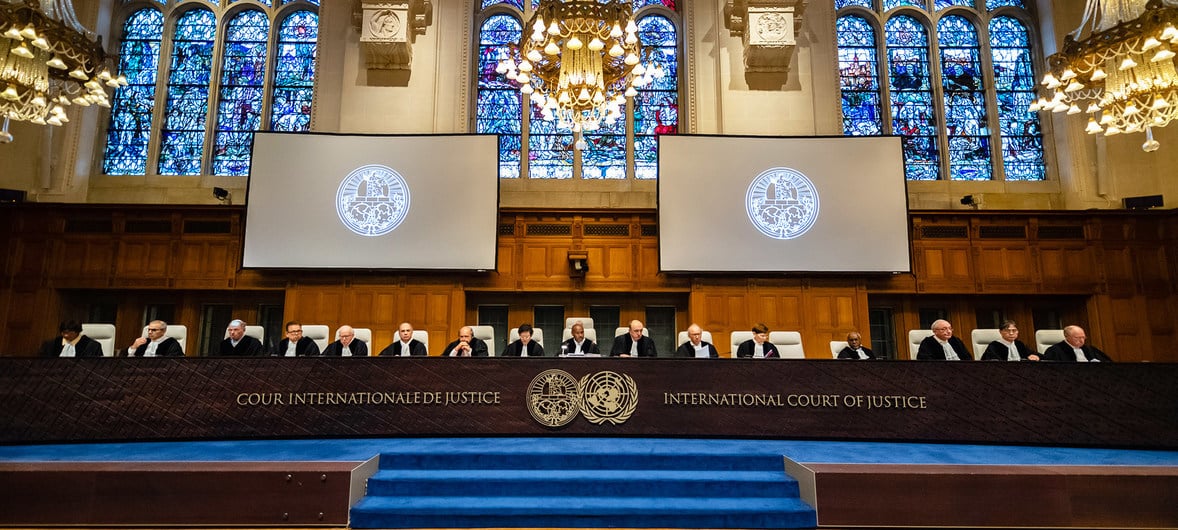 The International Court of Justice in The Hague
The International Court of Justice in The Hague© ICJ-CIJ/Wendy van Bree
Due to the openness and the usually quick acceptance of various groups – with many differences in culture, life philosophies and religions – the Netherlands has been able to develop as a country in which modern ideas can flourish and be put into practice. It is particularly well-known for its liberalism; modern religious movements, abortion and euthanasia procedures, drugs policies, same-sex marriage, etc. So, The Netherlands is known as a land of progress, often seen by outsiders to have an almost dangerous level of freedom.
The Dutch find it difficult to imagine that other values could contribute toward democratic achievements
But this liberalism is not without its downsides either. The Dutch are often somewhat pedantic, a land of vicars who know exactly how to use their raised positions to preach our free democracy of equality. The Dutch find it difficult to imagine that other values and norms could contribute toward democratic achievements, for example authority based on traditional family relationships.
Liberalism can also descend into a culture of immediate and non-critical acceptance of those things that people are not used to. After some hesitation, a Dutch person will soon conclude that they ‘must be tolerant’. Dealing with differences can also come very close to indifference, which is why our liberalism is not quite so popular abroad. That being said, most Dutch people aren’t too bothered about this; the Dutch do well by their own country.
